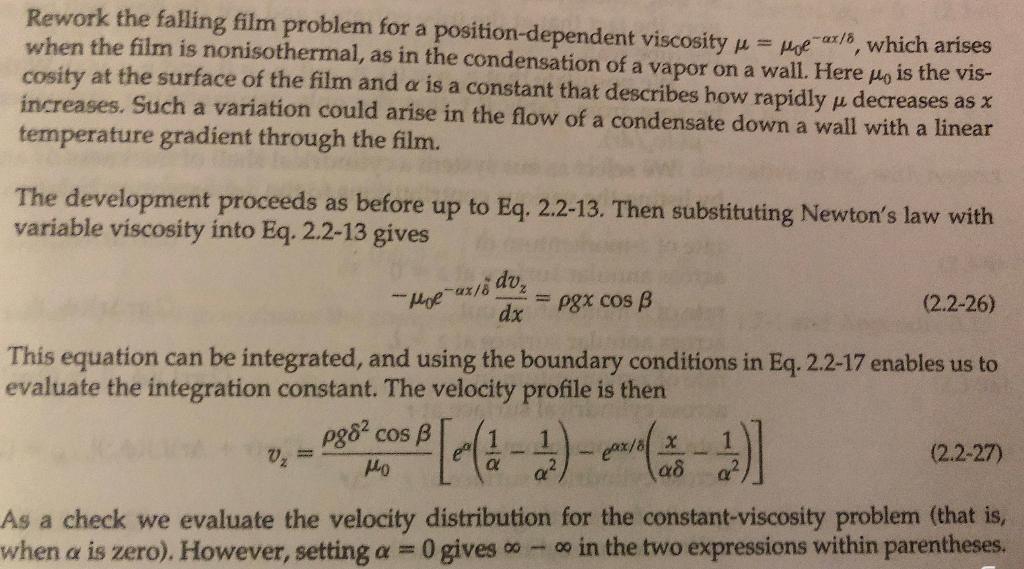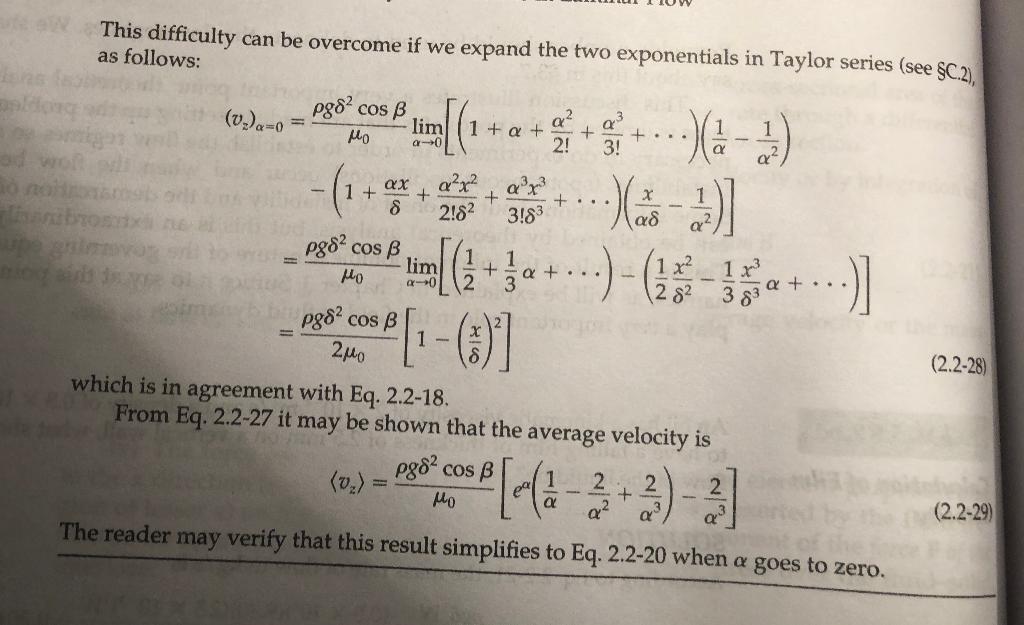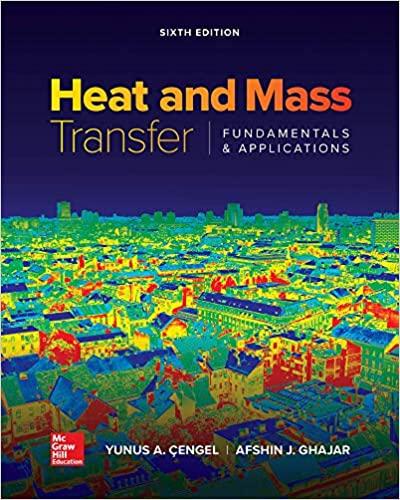Answered step by step
Verified Expert Solution
Question
1 Approved Answer
Rework the falling film problem for a position dependent viscosity with or mu = mu0(1-ax^2). (Hint: see solutions in Chapter 2 & 3 for falling
Rework the falling film problem for a position dependent viscosity with or mu = mu0(1-ax^2). (Hint: see solutions in Chapter 2 & 3 for falling film problem and also see Example 2.2.2) Here a is a constant and or mu0 is viscosity at the surface.
Transport phenomena. Below is example 2.2.2. Please help me. I will rate it. Thank you. 

Step by Step Solution
There are 3 Steps involved in it
Step: 1

Get Instant Access to Expert-Tailored Solutions
See step-by-step solutions with expert insights and AI powered tools for academic success
Step: 2

Step: 3

Ace Your Homework with AI
Get the answers you need in no time with our AI-driven, step-by-step assistance
Get Started


